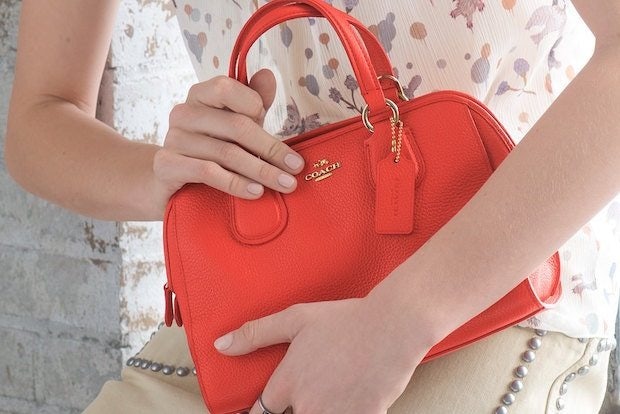
While many high-end luxury brands have continued to see a China slowdown over the past year, some labels geared more toward middle-class consumers such as Michael Kors and Tiffany have still been seeing double-digit growth in the Chinese market.
This week, we asked readers to submit questions to Hung Huang about the “accessible luxury” category in China, including its prospects compared to the high-end segment as well as its e-commerce potential.
For next week’s topic, we’re asking readers to submit their questions on
Chinese New Year travel shopping#
. With the Golden Week vacation period coming up, Chinese travelers will be heading abroad en masse, and retailers are doing everything they can to attract them.
Submit your question#
via Twitter (hashtag #AskHungHuang), Facebook, email (contact@jingdaily.com), or Weibo (hashtag #AskHungHuang#) before Monday, January 18.

As luxury sales slow in China, do you think the lower-priced “accessible luxury” segment brands such as Michael Kors have better future prospects than higher-end brands?#
-Anonymous#
I personally think there is no such thing as accessible luxury; it is either luxury, or it is not. Accessible luxury is a marketing concept, not a product category. As a concept, it works in China and will gain market share in China. The Chinese market is similar to the United States, where pure marketing concepts actually move merchandise.
Some “affordable luxury” brands such as Coach have been struggling with a sales slump in North America after being seen as too commonplace. Is this a risk in the China market?#
-Anonymous#
Becoming too commonplace is a risk for accessible luxury brands. The buzz created when it is first launched in a market flattens and the brand loses its market share. That's why I don't think it’s important whether or not a brand is called luxury or accessible luxury; the key is the product. If it is just a gimmick, it is destined to lose its luster. Consumers will not be dumb forever—not even in China.
Although few foreign high-end luxury brands have opened shops on Tmall, many “accessible luxury” sectors like cosmetics and sunglasses are active on the platform. Is Tmall more appropriate for accessible luxury brands?#
-Anonymous#
These days, to be or not to be on Tmall is
the#
existential questions for luxury or accessible luxury brands in China. Everyone knows Tmall is where the traffic is; everyone also knows that's where the pirates are. If you search for Burberry, you enter the official store of Burberry, but if you search for trench coat, the Burberry store does not show up at all. In fact, on top of the page, there is a list of famous trench coat brands, and Burberry is not even among them.
I think today, to have a e-commerce presence is a no-brainer, and not to be on Tmall should also be a no-brainer. Why would a world-famous brand lend its credibility to the biggest sales platform of fake goods? Take the Burberry scenario: a consumer will never "pass by" the Burberry store unless you already know the Burberry brand and can spell it correctly. Even though the site has humongous traffic, your store has no sign unless you pay for it. So really, how much difference does it make if you just start your own e-commerce site rather than be on Tmall? Especially if you are a brand already. So I would say e-commerce yes, Tmall no.